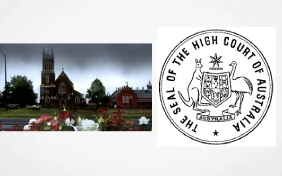Well… there should be is the simple answer, but precedent wins the day again and as this article states
Maurice Blackburn’s principal lawyer in its abuse compensation practice, John Rule,
“This decision puts Australia at odds with other common law jurisdictions like the UK and Canada who have developed the principle of vicarious liability to meet the scourge of child abuse,”
Lawyers Weekly Australia
The court said that without “clear and stable” principles for the imposition of vicarious liability, expanding this threshold to accommodate relationships that are “akin to employment” would produce “uncertainty and indeterminacy”.
It would also lead to a risk of “further complicating the already fraught distinction between employees and independent contractors”.
Any present difficulties in Australia or overseas with vicarious liability were not enough to persuade the full court, with it finding there was “no proper basis” for the development of common law by extension of the threshold or to address the specific issues of whether a church could be held vicariously liable for a priest’s actions.
“Insisting on a threshold requirement of an employment relationship for a finding of vicarious liability, including in cases such as the present, has been described as ‘harsh’,” the bench said.
“The acts of perpetrators, like those of Coffey, are predatory and the effect of them devastating. The relationship between the diocese and Coffey – while distinct – exhibited certain features that resembled that of a relationship of employer and employee.”
Maurice Blackburn’s principal lawyer in its abuse compensation practice, John Rule, said the decision would mean the church “will be able to again evade responsibility for the scourge of child abuse”.
“This decision puts Australia at odds with other common law jurisdictions like the UK and Canada who have developed the principle of vicarious liability to meet the scourge of child abuse,” he said.
However, in two decisions released alongside this, the High Court upheld the principle that permanent stays should only be used in exceptional circumstances for historic abuse cases.
Rule said the decisions were welcomed so survivors of child sexual abuse are not “excluded” from securing justice “simply because their abuser died before they came forward”.
“What we have seen over recent years is defendants unfairly and excessively using or threatening stays to permanently block the progress of child abuse cases,” Rule said.
“We hope these decisions on permanent stays bring to an end the use of this unfair legal tactic, ensuring survivors can pursue justice over the lifelong trauma of the horrific abuse they experienced as children.”
The Coffey case is Bird v DP (a pseudonym) [2024] HCA 41.





